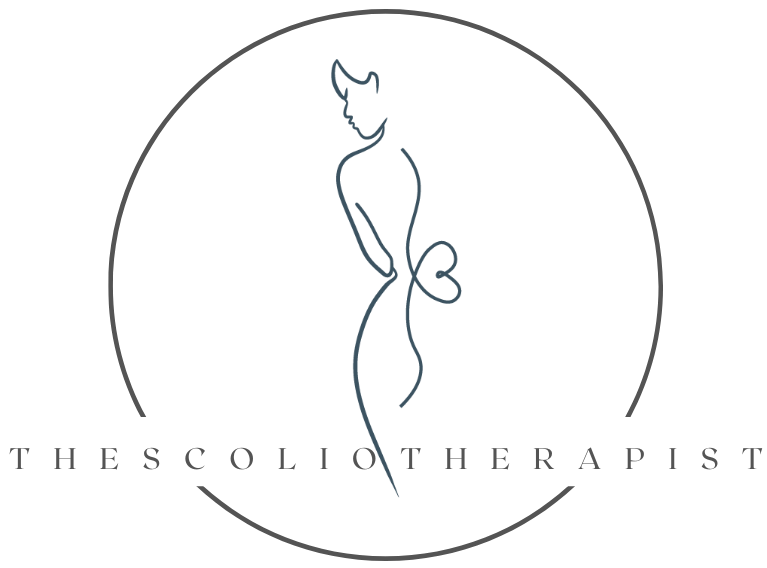Scoliosis and Body Confidence: How to Boost Your Self-Esteem
Today we’re talking about confidence and self-esteem — two of the most common issues that affect scoliosis patients. If your curve affects your body image and self-confidence, you’re not alone. Most scoliosis patients experience negative feelings about their bodies no matter how long it’s been since their diagnosis.
I’m talking about this issue with a special guest, Carolina Diaz. Carolina is a member of my Advanced Scoliosis Strength Collective small-group coaching program. We’re discussing the ways scoliosis can impact self-esteem and even more importantly, how to deal with those issues and improve your confidence!
Carolina’s History With Scoliosis and Body Confidence
Carolina spent many years as a dancer, starting when she was a child, and got into yoga and Pilates in her late teens. That’s also when she was diagnosed with scoliosis. Carolina got her scoliosis diagnosis fairly late, and most of her doctors essentially told her there was nothing to do other than try to focus on “standing up straight.”
Initially, scoliosis didn’t have a significant effect on Carolina’s self-esteem. She was still able to do most of the activities she enjoyed, so she mostly ignored her curve. However, following her pregnancy, Carolina started experiencing a lot of back pain, and she also noticed how pronounced her curve appeared in photographs. These things had a significant impact on her self-confidence, making her feel like a stranger in her own body and complicating normal activities like clothes shopping.
Coping With the Physical and Emotional Effects of Scoliosis
Carolina had spent years practicing Pilates and yoga for pain management to address some of the side effects of her dancing. But Carolina also realized that the more she strengthened her body, the better she felt.
After having her baby, Carolina started looking for specific resources to help her manage her scoliosis symptoms. She found me and my coaching group, The Scoliosis Strength Collective, and through the program, she’s learned to alter her exercise routine to directly address her scoliosis.
Carolina’s initial motivation was to prevent her curve from progressing and ensure that she could continue to live the active lifestyle she enjoyed. However, she found that being active and strengthening her body improved her self-esteem and confidence as well. Currently, her favorite activities are strength training and Pilates.
Tips for Improving Your Body Confidence
Carolina offers several suggestions for improving self-esteem. Her advice is based on her own journey with scoliosis:
Acceptance: For Carolina, the first step toward improving her self-confidence was accepting her diagnosis and the impact it had on her life and health.
Mindset: She had to get into the right mindset — choosing to focus on what she could do to help mitigate her symptoms instead of giving in to self-pity. For Carolina, the knowledge that she can do things to address her symptoms makes her feel strong and more in control of her situation.
Exercise: Carolina has found that keeping up with her scoliosis exercises improves her mental and emotional state as well as her physical health.
Persistence: It took a while for her to see results initially, but sticking with the program felt like a victory in and of itself because she was actively doing something to improve her life.
Support: Interacting with other scoliosis patients has helped Carolina feel “seen” by people who know what she’s going through, which helps her feel more secure in her own body.
Clothing: Carolina doesn’t let her curve dictate her wardrobe. For her, wearing whatever she wants regardless of her curve helps her feel comfortable and confident in her body. Her advice is to wear whatever makes you feel good, whether that means wearing clothing based on your curve or ignoring your curve when choosing an outfit.
Handling Insensitive Comments
We’ve all had that experience where someone without scoliosis complains to us about their back pain. What’s the best way to deal with that? Carolina believes it’s patience and tolerance.
The more she focused on not taking comments personally, the easier it was to just let them go. Remember, we never know what someone else is going through, and it’s the same when other people are interacting with us.
Scoliosis Doesn’t Have to Control Your Life
Perspective is really the foundation of self-confidence. If you have scoliosis, that’s just part of your body. It’s not something that will go away, but it’s also not something that has to dictate your entire life. As Carolina says, “Own what you’re going through, and stick to your plan.” Find the right course of action for you and your life, and then do that with confidence.
Do you want help understanding your curve and finding ways to reduce your symptoms? I’m here to help! I’m a scoliosis specialist and fellow scoliosis patient, so I completely understand what you’re going through. I’ve got a range of treatment options to help you feel better both physically and mentally.
If you want to reduce the progression of your curve and mitigate chronic pain, join The Scoliosis Strength Collective! It’s my online small-group coaching program that’s designed to help you better understand your body and your options for treating scoliosis at home. In this 6-month program, you’ll get personalized advice, effective exercises, and emotional support. Get all the details about The Scoliosis Strength Collective to see if it’s the right fit for you.
If you enjoyed this episode, please leave a rating and make sure you’re subscribed to the podcast to get every episode when it airs.
